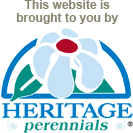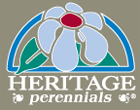Gymnocarpium dryopteris
Plant number: 9.035.050Also known as Northern Oak Fern, it is found on limestone and shale ledges and rocky slopes across northern regions of North America and around the world. It is delicate, slightly spreading in habit but not at all invasive. It resembles Oak Fern but its leaves are more narrowly triangular and bright green with a tissue-thin texture. The Cree used crushed oak fern leaves to repel mosquitoes and soothe mosquito bites. Because of its specific habitat preferences, it is uncommon. Plants prefer a moist, rich woodland soil, and cool summers. Beautiful for edging in the woodland or rock garden, or as a groundcover in shady locations. May require soil that has been treated with lime. Deciduous. Further details for |
| All 2 results here | Alphabetical list of all 4,000+ perennials here |
Gymnocarpium dryopteris
Plant number: 9.035.050Also known as Northern Oak Fern, it is found on limestone and shale ledges and rocky slopes across northern regions of North America and around the world. It is delicate, slightly spreading in habit but not at all invasive. It resembles Oak Fern but its leaves are more narrowly triangular and bright green with a tissue-thin texture. The Cree used crushed oak fern leaves to repel mosquitoes and soothe mosquito bites. Because of its specific habitat preferences, it is uncommon. Plants prefer a moist, rich woodland soil, and cool summers. Beautiful for edging in the woodland or rock garden, or as a groundcover in shady locations. May require soil that has been treated with lime. Deciduous. Further details for |






